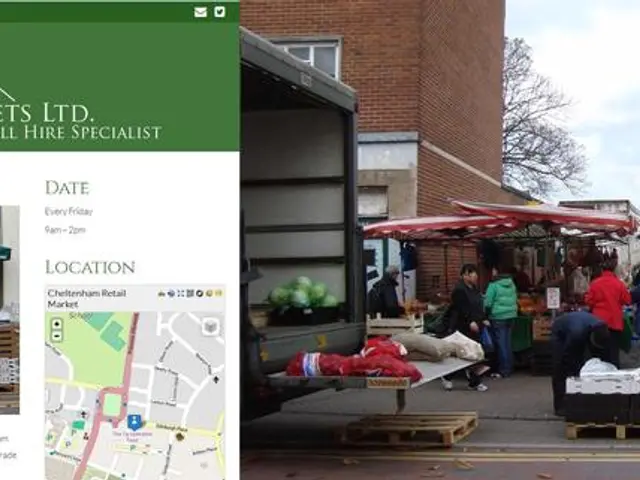Regulation of Artificial Intelligence within the Digital Markets of the European Union
In the ever-evolving digital landscape, the European Digital Markets Act (DMA) plays a significant role in ensuring fair and competitive markets. As of August 2025, Artificial Intelligence (AI) is not yet formally designated as a Core Platform Service (CPS) under the EU Digital Markets Act (DMA).
The European Commission is currently weighing the pros and cons of explicitly adding AI to the list of CPS due to uncertainties about how to define the designation and which entities would qualify as gatekeepers. However, AI functionalities integrated into existing CPS, such as search engines or virtual assistants, are already considered covered by the DMA.
The DMA does not currently list AI as a standalone CPS, but the Commission is actively assessing whether to adapt the DMA to better cover AI services in its 2026 review cycle. Meanwhile, AI compliance is primarily governed by the EU AI Act, which came into force in August 2024 and has enforceable obligations on general-purpose AI systems.
Gatekeepers, as large platforms providing Core Platform Services (CPS), include online search engines, social networks, operating systems, marketplaces, or online advertising services. Two such gatekeepers were fined €500 million and €200 million in March 2025 for breaching DMA obligations.
Under the DMA, business users have the right to free, high-quality, and real-time access to data provided for or generated in the context of the use of the CPS. Business data cannot be used in competition with business users by gatekeepers if it is not publicly available and is generated or provided by those business users in the context of their use of the CPS.
The DMA also prohibits gatekeepers from favouring their own services and products over similar ones offered by third parties in ranking, indexing, and crawling. Personal data cannot be combined by gatekeepers from one CPS with personal data from some of their own other or third-party services, and vice-versa. Anonymization is required when addressing data access requests from providers of online search engines.
The European Commission is required to be notified of any intended concentration prior to its implementation where the merging entities or the target provide CPS or any other services in the digital sectors or enable the collection of data, irrespective of whether it needs to be notified under EU or national merger rules. Appropriate safeguards must be implemented when the data to be shared includes personal data, and user consent is necessary for business users' access requests.
Many notifications thus far concern acquisitions of AI companies by gatekeepers, but it remains unclear whether AI models may qualify as a CPS. The DMA aims to ensure contestable and fair markets in the digital sector, and the Commission is working diligently to adapt it to the rapidly changing digital landscape.
[1] European Commission. (2023). Proposal for a Regulation on Contestable and Fair Markets in the Digital Sector (Digital Markets Act). Retrieved from https://ec.europa.eu/info/law/better-regulation/have-your-say/initiatives/12527-Digital-Markets-Act
[2] European Commission. (2022). Proposal for a Regulation laying down harmonised rules on artificial intelligence (Artificial Intelligence Act). Retrieved from https://ec.europa.eu/info/law/better-regulation/have-your-say/initiatives/12507-Artificial-Intelligence-Act
[3] European Commission. (2021). Proposal for a Regulation on the transparency and accountability of artificial intelligence systems. Retrieved from https://ec.europa.eu/info/law/better-regulation/have-your-say/initiatives/12506-Artificial-Intelligence-Transparency-and-Accountability-Regulation
[4] European Parliament. (2021). Report on the proposal for a regulation of the European Parliament and of the Council on contestable and fair markets in the digital sector (Digital Markets Act). Retrieved from https://www.europarl.europa.eu/doceo/document/TA-9-2021-0187_EN.html
[5] European Commission. (2021). Roadmap for the Digital Services Act and the Digital Markets Act. Retrieved from https://ec.europa.eu/info/publications/roadmap-digital-services-act-and-digital-markets-act_en
- Despite AI not being officially designated as a Core Platform Service (CPS) under the EU Digital Markets Act (DMA) as of August 2025, AI functionalities integrated into existing CPS, such as search engines or virtual assistants, are already covered by the DMA.
- As the European Commission continues to assess whether to expand the DMA to better regulate AI services in its 2026 review cycle, AI compliance is primarily governed by the EU AI Act, which came into force in August 2024 with enforceable obligations on general-purpose AI systems.




